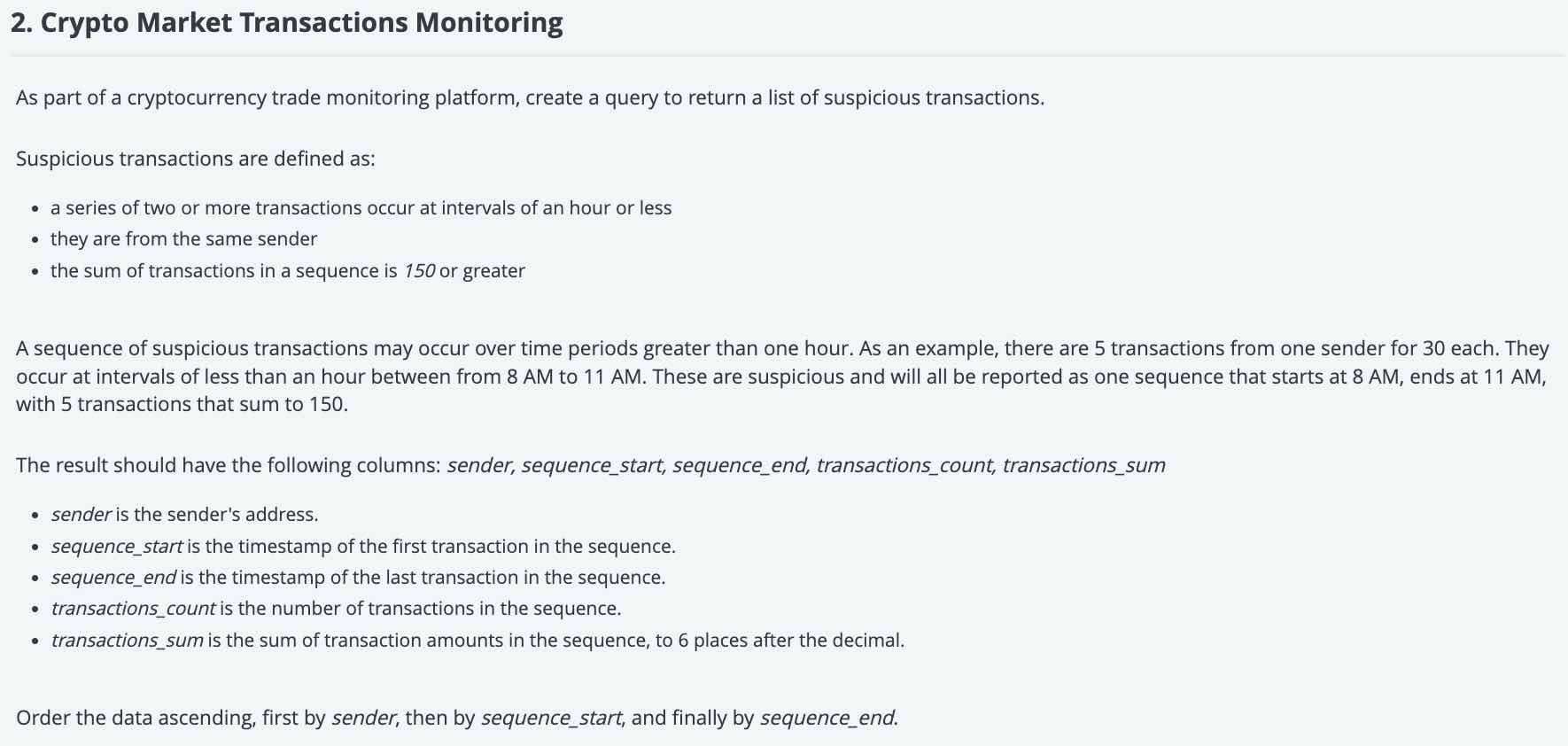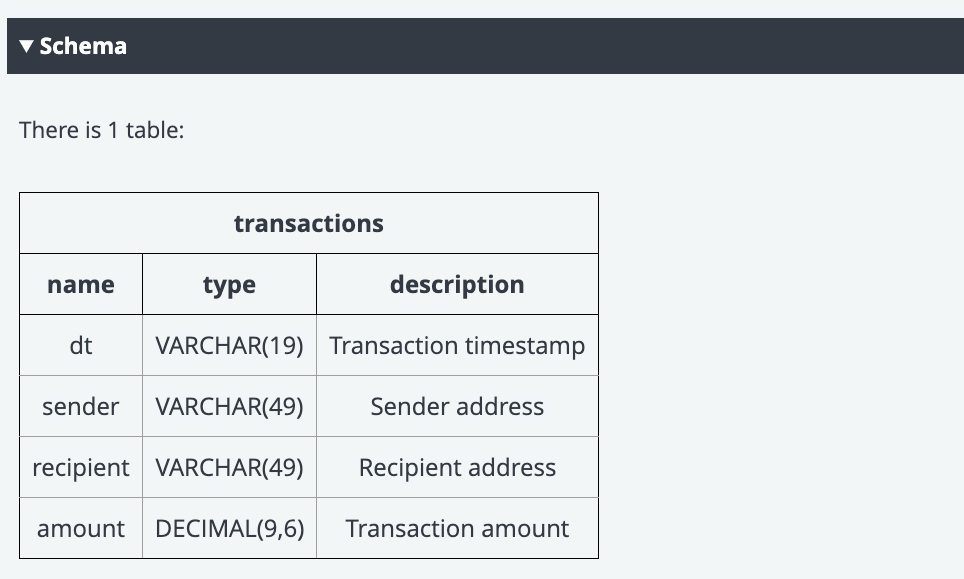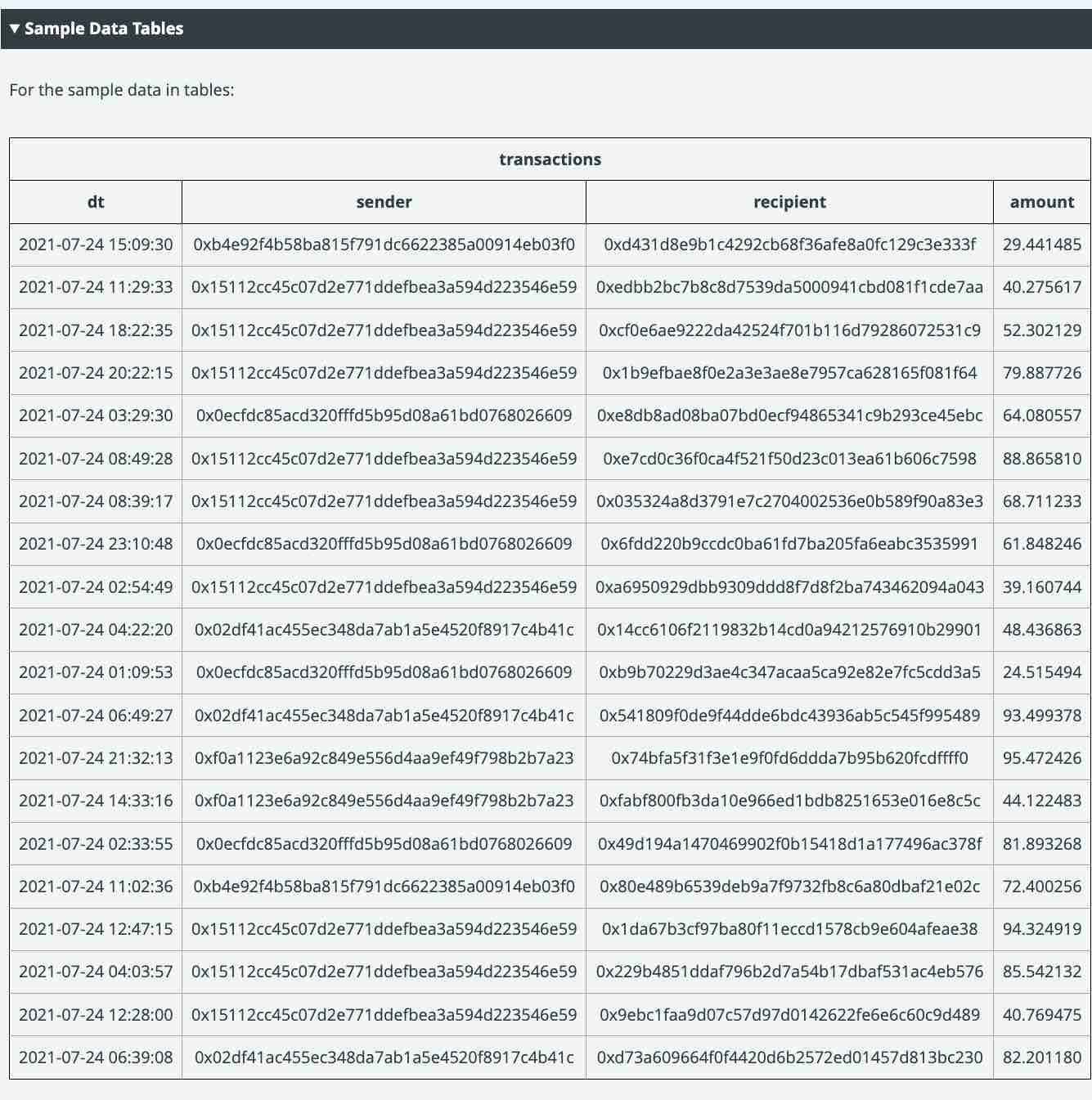Advanced SQL Query Samples - Transactions Monitoring
Transactions Monitoring
Solution (explanation in comments)
with t as(
select
-- use lag() function to add one more column,
-- which shows the datetime of the previous transaction
lag(dt) over(partition by sender order by dt) as prev_dt,
dt,
-- use lead() function to add the datetime of next transaction to each rows of transactions
lead(dt) over(partition by sender order by dt) as next_dt,
sender,
amount
from transactions
),
s as (
select *
from t
-- filter out the transactions which occur within one hour interval or less
where datediff(second,prev_dt, dt) <= 3600 or datediff(second,dt,next_dt)<=3600
),
se as (
select
*,
-- use subquery to add the end_datetime of a sequence of suspicious transactions
-- the transaction, which is the end of a sequence,
-- has the next_transaction_datetime more then one hour away or doesn't have next_transaction
-- And the transaction is from same sender, and is later than the current transaction
(
select min(s1.dt)
from s s1
where
s1.sender = s.sender
and datediff(second,prev_dt, dt) <= 3600
and (datediff(second,dt,next_dt)>3600 or next_dt is null)
and s1.dt>= s.dt
) as end_dt
from s -- subquery, date function
)
-- As the same squence of transactions from same sender, have the same end_transaction_datetime
-- so group by sender, end_transaction_datetime
-- select min(dt) as the start of the sequencial transactions,
-- count(dt) as quantity of the sequencial transactions, sum(amount) as sum
-- having sum(amount) > 150 as required.
select sender, min(dt), end_dt, count(dt), sum(amount)
from se
group by sender, end_dt -- aggregation
having sum(amount)>150
order by sender, min(dt)
goChallenge description:

Scheme

Sample Data

Expected output

Summary:
The key part is to use subquery to add end_transaction_datetime to all the transaction in same sequence, so that all the expected data can selected in a single group by.
Links:
Link to the challenge on HackerRank